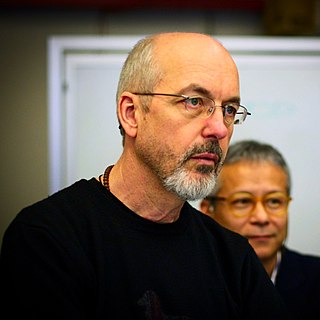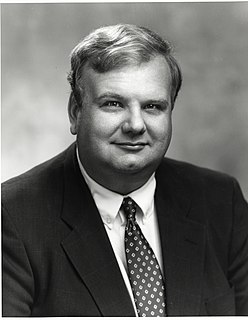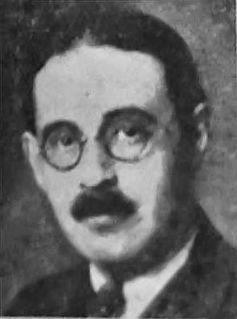A Quote by Bill Viola
Art has always had as its test in the long term the ability to speak to our innermost selves.
Related Quotes
We benefit, intellectually and personally, from the interplay between different selves, from the balance between long-term contemplation and short-term impulse. We should be wary about tipping the scales too far. The community of selves shouldn't be a democracy, but it shouldn't be a dictatorship, either.
In Canada, when we speak of water, we're speaking of ourselves. Canadians are known to be unextravagant, and one explanation of this might be that we know that wasted water means a diminished collective soul; polluted waters mean a sickened soul. Water is the basis of our self-identity, and when we dream of canoes and thunderstorms and streams and even snowballs, we're dreaming about our innermost selves.
The Bush Administration believes the Kyoto protocol could damage our collective prosperity, and in so doing, actually put our long-term environmental health at risk. Fundamentally, we believe that the protocol both will fail to significantly reduce the long-term risks posed by climate change and, in the short run, will seriously impede our ability to meet our energy needs and economic growth.
If we examine every stage of our lives, we find that from our first breath to our last we are under the constraint of circumstances. And yet we still possess the greatest of all freedoms, the power of developing our innermost selves in harmony with the moral order of the universe, and so winning peace of heart whatever obstacles we meet.
I had always drawn, every day as long as I had held a pencil, and just assumed everyone else had too…Art had saved me and helped me fit in…Art was always my saving grace…Comedy didn’t come until much later for me. I’ve always tried to combine the two things, art and comedy, and couldn’t make a choice between the two. It was always my ambition to make comedy with an art-school slant, and art that could be funny instead of po-faced.
When teachers are forced to teach to the test, students get bored and genuine education ceases, no matter what the test scores may say… The examination as a test of the past is of no value for increased learning ability. Like all external motivators, it can produce a short term effect, but examinations for the purpose of grading the past do not hook a student on learning for life.
We must become so alone, so utterly alone, that we withdraw into our innermost self. It is a way of bitter suffering. But then our solitude is overcome, we are no longer alone, for we find that our innermost self is the spirit, that it is God, the indivisible. And suddenly we find ourselves in the midst of the world, yet undisturbed by its multiplicity, for our innermost soul we know ourselves to be one with all being.








































